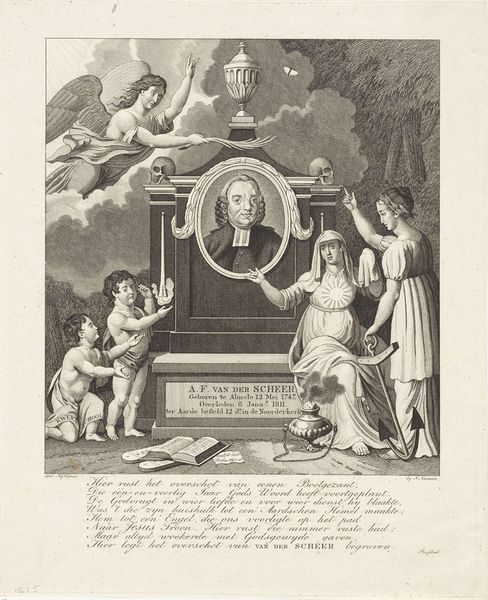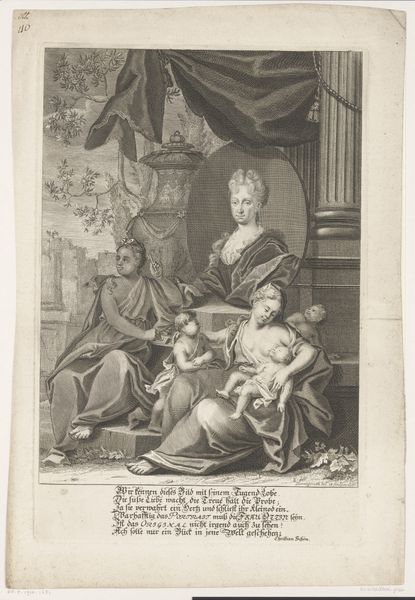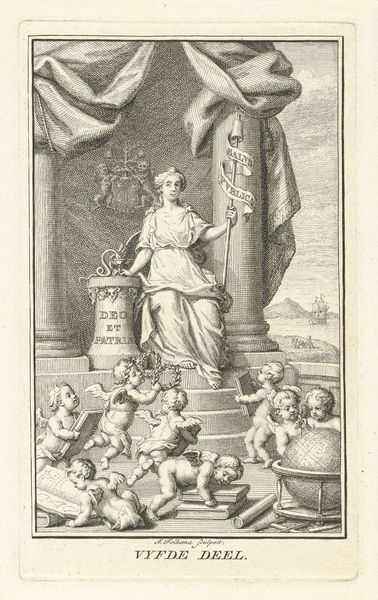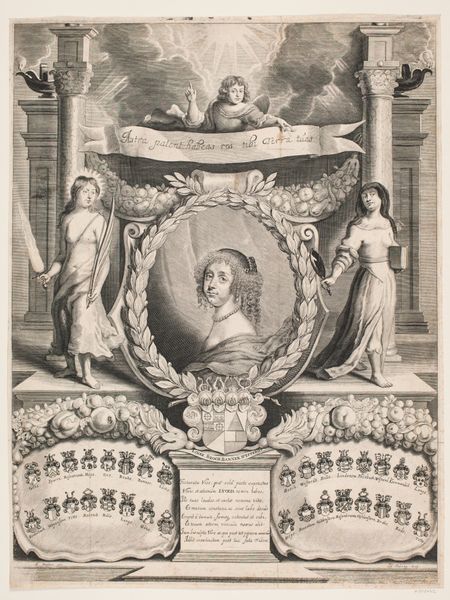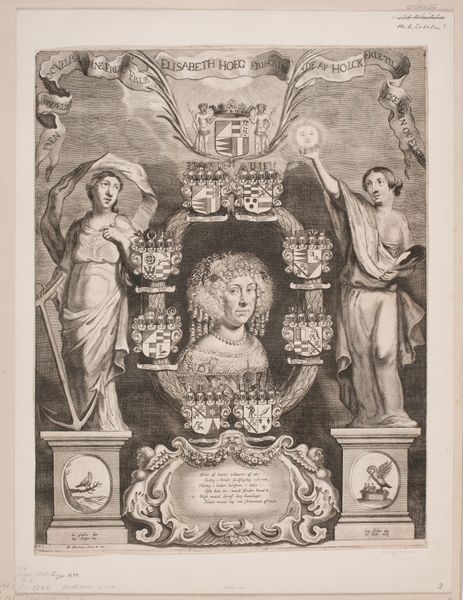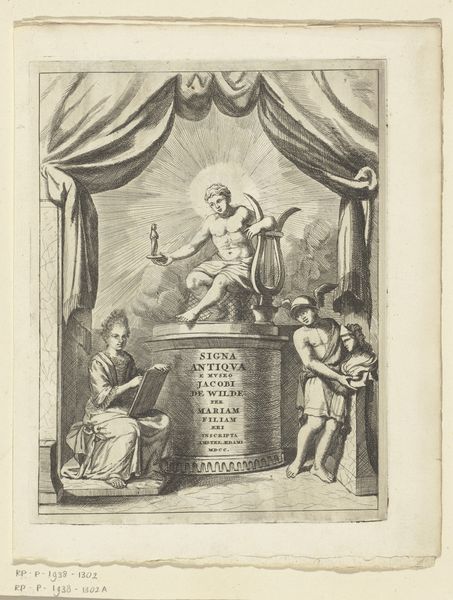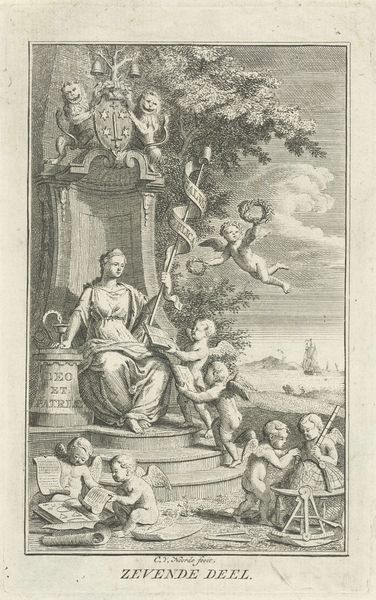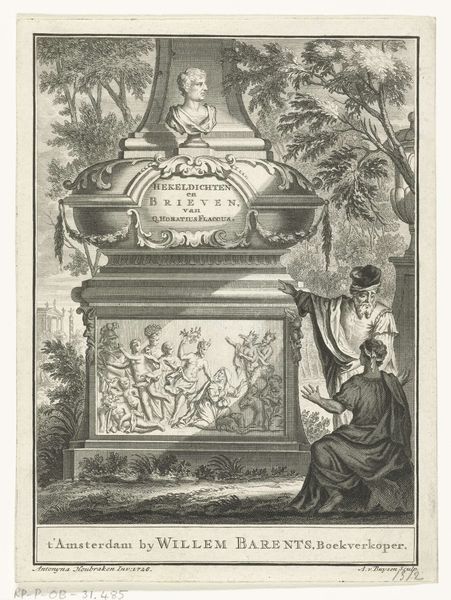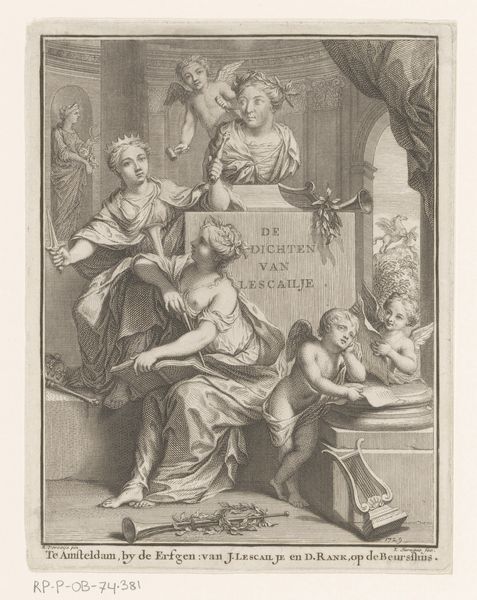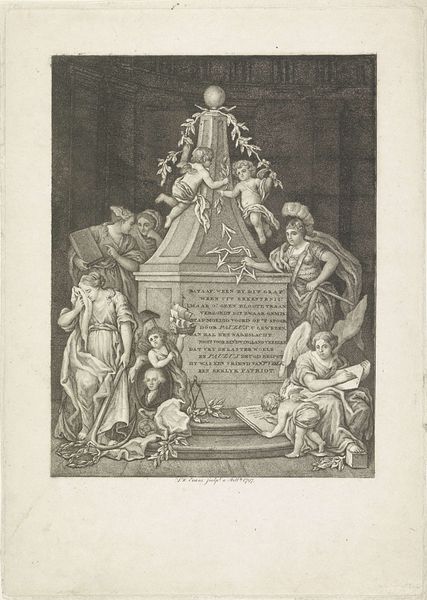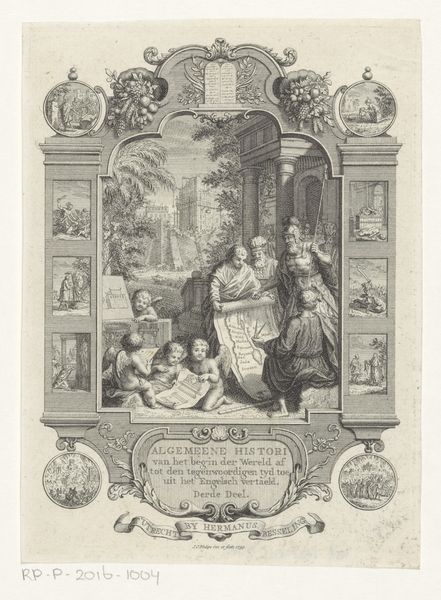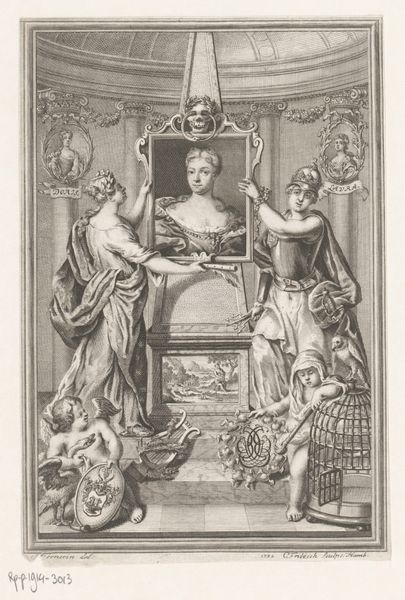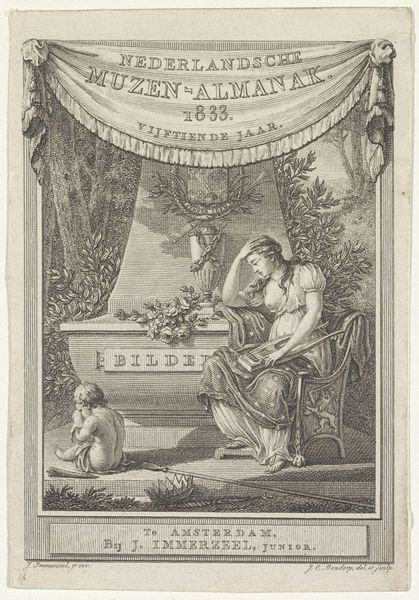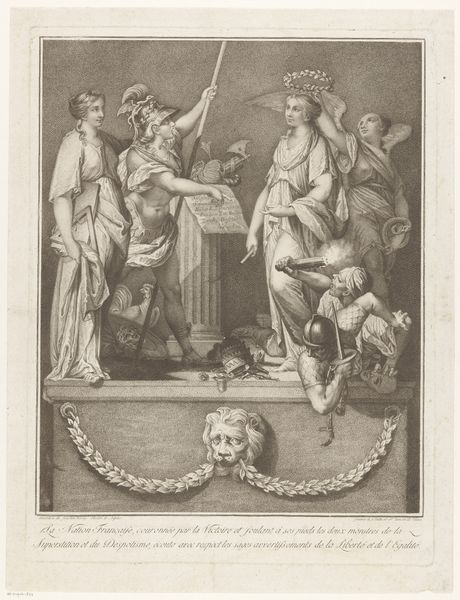
Grafmonument voor Willem V, prins van Oranje-Nassau, 1806 1806 - 1808
0:00
0:00
cornelisbogerts
Rijksmuseum
print, engraving
#
portrait
#
neoclacissism
#
allegory
# print
#
old engraving style
#
pen-ink sketch
#
sketchbook drawing
#
cityscape
#
history-painting
#
engraving
Dimensions: height 327 mm, width 242 mm
Copyright: Rijks Museum: Open Domain
Cornelis Bogerts created this print of the Grave monument for Willem V, Prince of Orange-Nassau, in 1806. This print is an allegorical representation of the prince's death, employing symbols resonant with the political climate of the Batavian Republic. The visual language combines classicism with Dutch nationalism, reflecting the complex identity of the time. A portrait of Willem V is surrounded by symbols of monarchy and Dutch identity, referencing the historical context of the House of Orange's leadership. Note the skull at the very top, and the grieving figure of Dutch Maiden to the right. These symbols invite interpretation within the context of Dutch political history and the shifting cultural landscape of the early 19th century. By examining archival documents, political pamphlets, and contemporary accounts, we can better understand the role of art in shaping public opinion and preserving cultural memory. The meaning of art is contingent on social and institutional context.
Comments
No comments
Be the first to comment and join the conversation on the ultimate creative platform.
